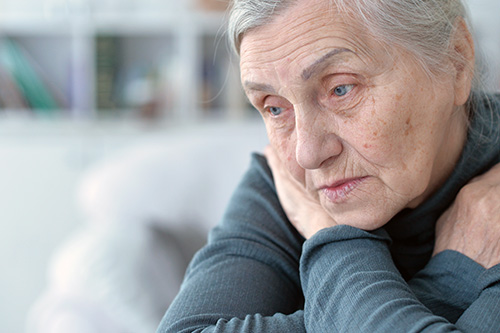Older adults often experience significant life changes, such as retirement, loss of loved ones, physical health challenges, and reduced social interactions depending on their living situation. It is important to stay aware of your loved one to make sure they get the support they need as these life challenges arise. Here are some tips for you to help recognize the warning signs of suicide or depression.
- Be Aware of the Signs of Depression: A withdrawal from social activities, expressing feelings of hopelessness, giving away possessions, talking about death, and significant changes in mood or behavior.
- Stay Connected: Does your senior loved one seem lonely or are they recently isolating themselves? Encourage them to engage in social interactions with family or friends. If you are concerned about your loved one, try to visit them regularly or arrange for companionship.
- Listen and Communicate: Engage in open, non-judgmental conversations with your loved one about their feelings and concerns. Sometimes, simply lending a listening ear can make a significant difference. Collaborative efforts with caregivers can help provide a stronger safety net of emotional support.
- Identify Risk Factors: Be aware of common risk factors such as chronic illness, chronic pain, loss of independence, financial stress, bereavement, and a history of other mental health issues.
- Medication Management: For seniors taking medication, ensure they are following their prescribed medication regimen. Some medications may contribute to depression or suicidal thoughts, so it’s essential to monitor and discuss any side effects with a healthcare provider.
- Encourage Professional Help: If you suspect a senior is at risk of suicide or struggling with mental health issues, encourage them to seek professional help. This could involve therapy, counseling, or medication. Help them find a mental health provider experienced in working with older adults.
- Emergency Contacts: Ensure that you and the senior have access to emergency contact numbers, including local crisis hotlines, healthcare providers, and family members who can assist in times of crisis.
Remember that suicide prevention is a collective effort. If you believe someone is in immediate danger of harming themselves, do not hesitate to call 911 or take them to the nearest emergency room. Swift action can save lives.
